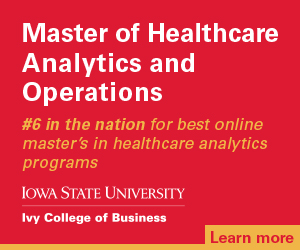Connecting with children

When 11-year-old Cody seeks guidance from a male role model, he calls his mentor Barry Spear to come to his house to shoot hoops. Playing basketball is code for talking about life’s issues and the driveway becomes a place where Spear provides support, counsel, friendship and reinforcement.
“I’m not his dad, and I never want to be his dad, but I happen to know when Cody says, ‘Let’s go shoot hoops,’ he wants to talk,” Spear said.
Spear, vice president of system development for Iowa Health System and co-chair of the Iowa Mentoring Partnership, has been mentoring Cody for more than a year. Together, they go fishing and camping, ride bicycles and play catch. Cody lives with his mother and was matched with Spear through the IMP because he needed a male role model. Spear says mentoring is one of the most important jobs he has ever had.
“I don’t think there’s any more important part of my life right now than my grandchildren,” Spear said. “But ranked so close behind that is what Cody and I are experiencing and learning from each other.”
As co-chair of the IMP, Spear is on a mission to create 50,000 matches between adults and children during the next five years. It’s a statewide initiative, he said, that not only includes Iowa Health System, but companies throughout Iowa.
“Being one of the state’s largest employers, we’re saying we’re going to belly up to the bar and be the role model,” Spear said.
Spear said Iowa Health System hospitals in Sioux City and Dubuque serve as model programs, where mentoring is catching on with employees. The company will launch the same initiative during the upcoming holiday season at its Des Moines operations, which include Blank Children’s, Methodist and Lutheran hospitals. More than 4,000 employees work at the hospitals.
“I don’t think it’s unreasonable for us to get 300 volunteers from our Des Moines operations,” Spear said. “The last thing I want to do is portray this as mandatory, but there are compelling reasons to be involved.”
Locally, Spear said, the program will partner with Number 1 Question: Is it Good for the Kids?, a grass-roots marketing and advocacy group whose goal is to ensure that all children in the Des Moines area are safe, healthy, happy and successful. Sam Carrell, executive director, said his group is supported by several organizations, including the Greater Des Moines Community Foundation, the Annie E. Casey Foundation, Mid-Iowa Council of the Boy Scouts of America, Mid-Iowa Health Foundation, Pioneer Hi-Bred International Inc., Principal Financial Group Inc., United Way and Variety Club of Iowa. He said Iowa Health System’s participation is crucial to the program’s success.
“Their involvement is huge,” he said.
Spear said Number 1 Question also provides the mentoring partnership with a tangible process to measure its success.
“We don’t need to reinvent the wheel,” he said. “That’s why we’re partnering our way to success. This is not about companies starting their own mentoring programs. It’s about encouraging them to recruit their employees to participate with existing mentoring programs like Big Brothers/Big Sisters and Save Our Youth.”
Spear meets with company executives and asks them to commit to introducing mentoring programs to their employees. At the end of his meetings, he asks executives to sign a pledge card to create a policy for their company that acknowledges, encourages and rewards volunteerism. Spear cautions, however, that these incentives do not include time off with pay for employees. He also asks CEOs and presidents to sign a letter of intent that guarantees their company will invite representatives of mentoring organizations to speak to their employees.
More than three months into the project, Spear said, the pledge cards have paid off. In Sioux City, he met with 63 local executives, all of whom signed pledge cards. As a result, the number of mentors increased from 140 to more than 400. In Dubuque, where Spear met with 25 business leaders, the city has seen a 45 percent increase in the number of employee volunteers. Spear has recruited high-profile companies like IBP, Gateway Computers and Deere & Co., as well as the Sioux City and Dubuque County governments.
“All these people are understanding there is no more effective way to alter at-risk youths’ bad decisions,” he said. “You don’t just turn away from this.”
Spear said he tells executives that even though they are not morally obligated to mentor troubled or disadvantaged children, they are responsible from an economic standpoint to help build stronger communities, workforces and companies.
“We talk some about an enlightened self-interest,” Spear said, “a more productive workforce, lowering the costs of health-care premiums, and contributing to economic development. That goes beyond writing a $10,000 check for artwork or sponsoring a light display at Water Works Park. This is about them taking care of their own companies through getting involved in workforce development.”
Figures from the National Mentoring Partnership show that mentors help children stay in school, achieve their goals and avoid unsafe activities. According to research, children who regularly meet with mentors are 46 percent less likely to begin using drugs; 27 percent less likely to begin drinking alcohol; 52 percent less likely to skip school; and 33 percent less likely to hit someone.
In Polk County, Carrell said, there are thousands of kids who are in need of a mentor. He said 5,500 children have been removed from their homes through CHINA (children in need of assistance) petitions. Even though some of those youths receive government assistance, they still need a positive role model in their lives to make them productive members of society.
“The last piece of the puzzle often is the role model, the one that helps them be successful in life,” he said. “This is where the gap needs to be filled.”
Spear said Greater Des Moines is in need of 9,000 mentors to guide children between the ages of 5 and 17. Statistics show more than 8,000 kids will drop out of the Des Moines school system before they graduate; more than 10,000 children each year are suspended in grades six through 12; and as many as 16,000 students are not reading or performing math and science skills at their grade level.
Carrell also emphasized the economic impact troubled youths have on Polk County. Each child lost to the criminal justice system, he said, costs taxpayers approximately $1.7 million. Additionally, one-third of all children born in Polk County live in single-parent homes and an annual average of 517 teens give birth to babies in Polk County. “That means those kids, who are now parents, are the ones at risk and are creating a cycle,” Spear said.
Carrell said the money used to fund recreation and entertainment projects including the Iowa Events Center, the Principal Riverwalk and Gray’s Lake projects, could have been used to mentor more than 230 children.
“If you start thinking of it from that standpoint, ‘Where do you want to use your community resources?’ you’ll find it’s easier to alter a child’s life now compared to paying for their assistance down the road when they can’t climb out of poverty because they don’t have the foundation to command more than a minimum wage,” Carrell said. “That’s where the business community can play an active role, not only because it’s the right thing to do, but it can significantly impact the economy.”
Both Spear and Carrell emphasized that despite the economic impact, positive or negative, a child has on society, you can’t measure a youth’s worth in dollars and cents.
“How do you put a price on a kid’s life?” Spear said. “This is an opportunity to stand beside a young person and point out that the most awesome responsibility they will ever have is to use their abilities and they can make the right choices.”







